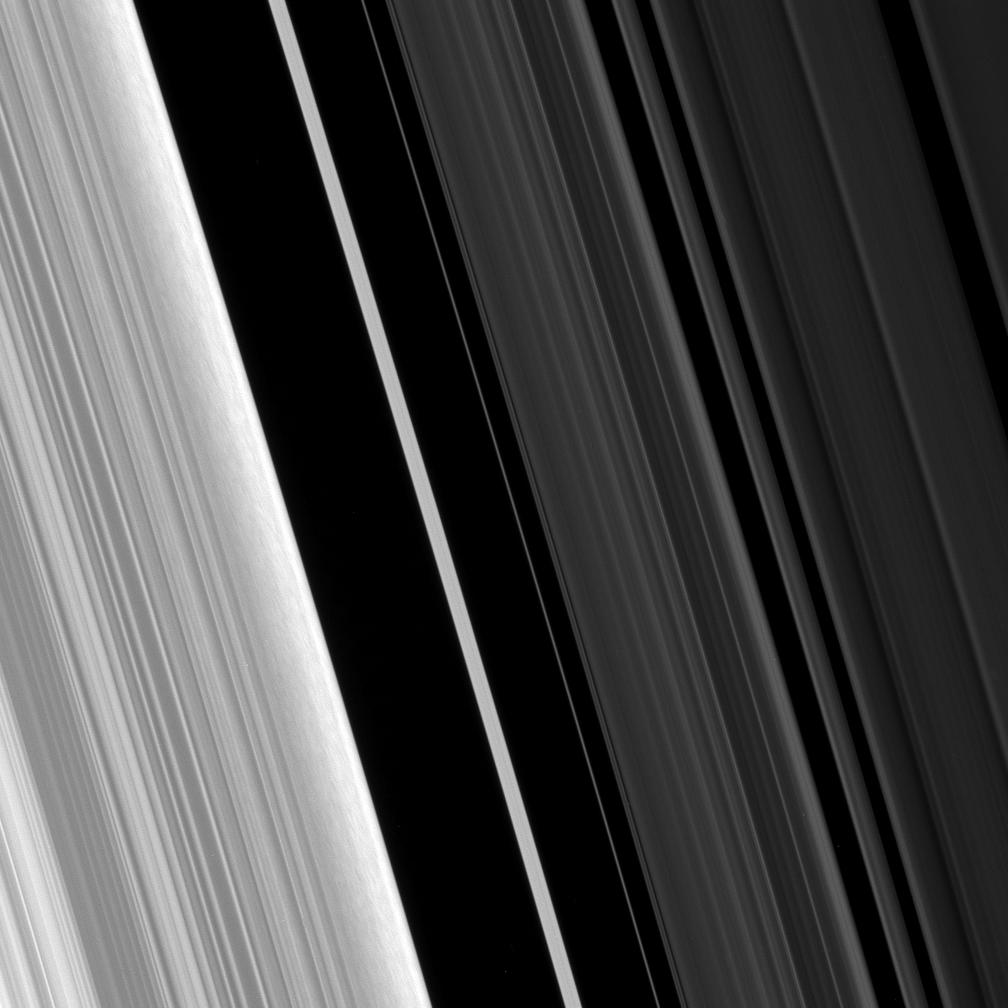Structure Along the Edge

| PIA Number | PIA10404 |
|---|---|
| Language |
|
The Cassini spacecraft stares at the Huygens Gap -- the region between Saturn's outer B ring and the ringlets of the prominent Cassini Division -- in this high-resolution view.
Ring scientists think that the scrambled pattern seen here in the B ring's outer edge might represent gravitational clumping of particles there -- that is, the self-gravity of groups of particles orbiting together makes them form clumps. This may be due to the fact that this region is compressed periodically, owing to perturbations by the moon Mimas. The outer B ring edge (at left) is, in fact, sculpted by an orbital resonance with Mimas.
The clumping feature may be due to the fact that this region is compressed periodically, owing to perturbations by Mimas.
This view looks toward the sunlit side of the rings from about 44 degrees below the ringplane. The image was taken in visible light with the Cassini spacecraft narrow-angle camera on May 10, 2008. The view was acquired at a distance of approximately 270,000 kilometers (168,000 miles) from Saturn. Image scale is 1 kilometer (0.6 mile) per pixel.
The Cassini-Huygens mission is a cooperative project of NASA, the European Space Agency and the Italian Space Agency. The Jet Propulsion Laboratory, a division of the California Institute of Technology in Pasadena, manages the mission for NASA's Science Mission Directorate, Washington, D.C. The Cassini orbiter and its two onboard cameras were designed, developed and assembled at JPL. The imaging operations center is based at the Space Science Institute in Boulder, Colo.
For more information about the Cassini-Huygens mission visit http://saturn.jpl.nasa.gov . The Cassini imaging team homepage is at http://ciclops.org .
Credit: NASA/JPL/Space Science Institute
